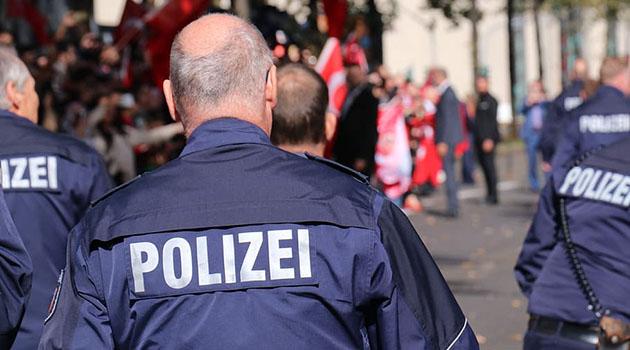German police officers who joined neo-Nazi groups online are being disciplined and dismissed in one state

Authorities in one German state have discovered 29 participants in ultra-right chat groups who are also police officers. All have been dismissed from service and disciplinary proceedings have begun against them.
Herbert Reul, Interior Minister in the state of North Rhine-Westphalia, informed the public of the developments. Five such groups using the WhatsApp communications application have been discovered there so far.
Of the police officers found to be involved, 25 were supervised by the Police Presidium in Essen. The vast majority had previously served in the town of Mülheim an der Ruhr.
The authorities performed raids against 14 police officers in 34 stations and in their private residences in Duisburg, Essen, Moers, Mülheim and Oberhausen, according to the Deutsche-Presse Agentur (DPA) wire service. Speaking yesterday, Reul said the discovery “discredits the police”.
Those who were participating in the chats exchanged 126 image files including photographs of the Nazi leader Adolf Hitler, the Nazi swastika, and a photoshopped image of a present-day refugee in a gas chamber. Reul has ordered an extraordinary inspection of the Police Presidium in Essen and entrusted a Special Commissioner with investigating right-wing extremist tendencies in the North Rhine-Westphalia police.
The Interior Minister said he assumes there are more participants in such right-wing extremist communications groups who are also police officers. So far the investigation was based on data from a single mobile telephone.
During the morning police raid on the suspects, other mobile telephones were confiscated. “We must ask ourselves some unpleasant questions,” Reul said yesterday.
“Who knew about this? Why has this been tolerated for years, and by whom?” the politician asked.
Neo-Nazi ideology permeating the police ranks is something that representatives of the federal government have downplayed to date. German Interior Minister Horst Seehofer rejected calls in July to investigate the extent of racist stances among police officers by saying it is not a “structural problem” in the country.
